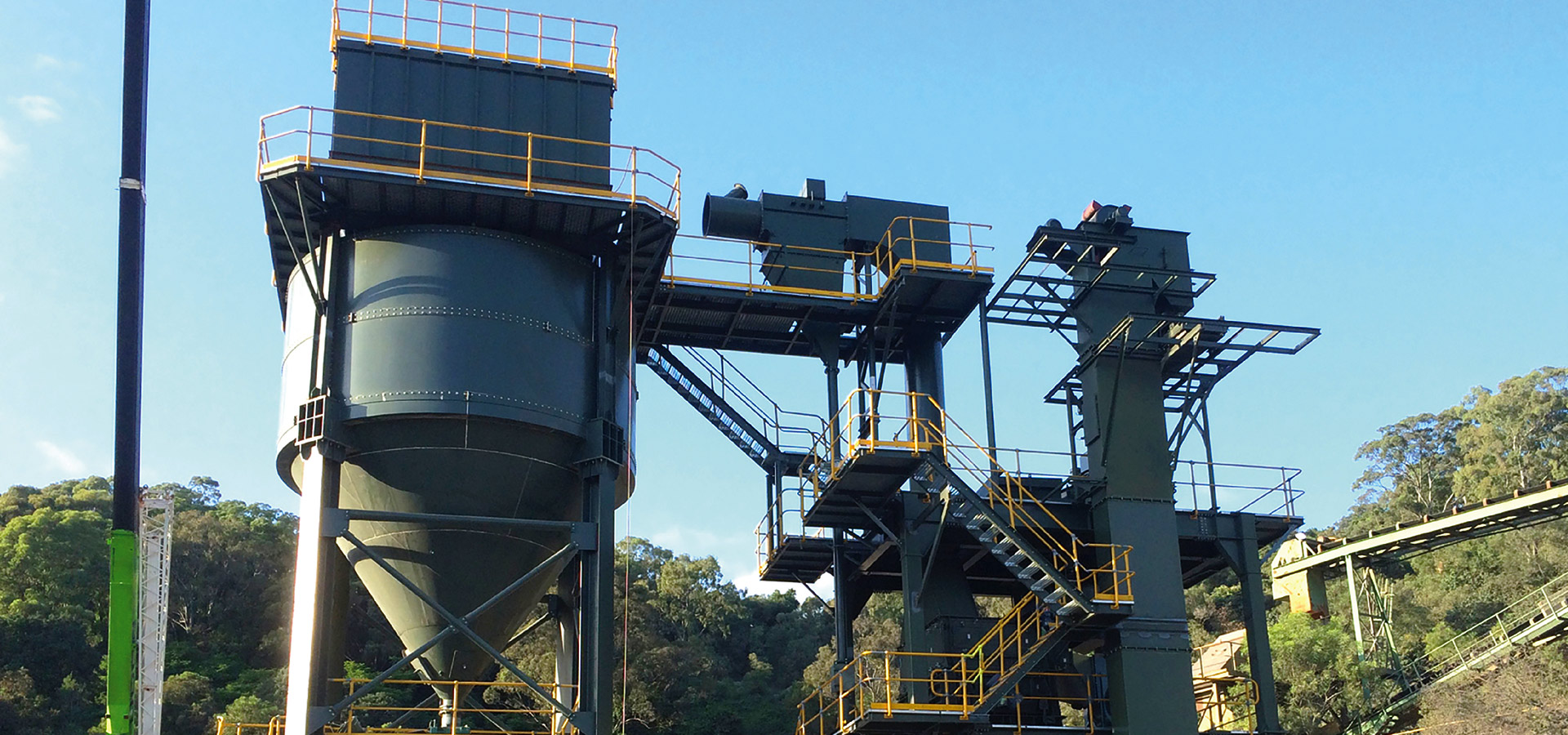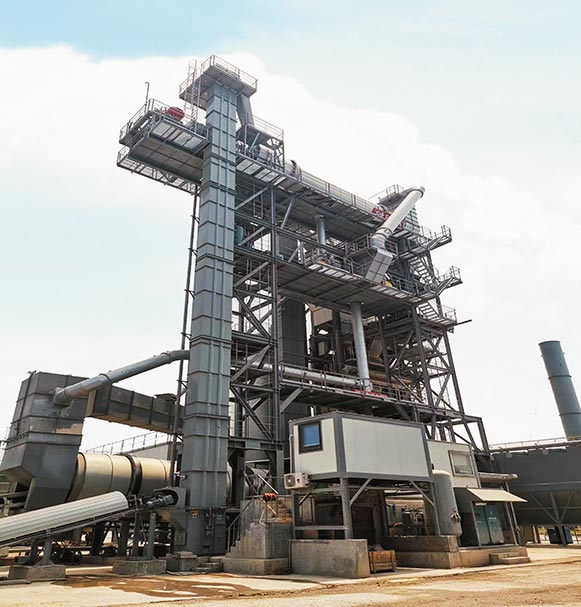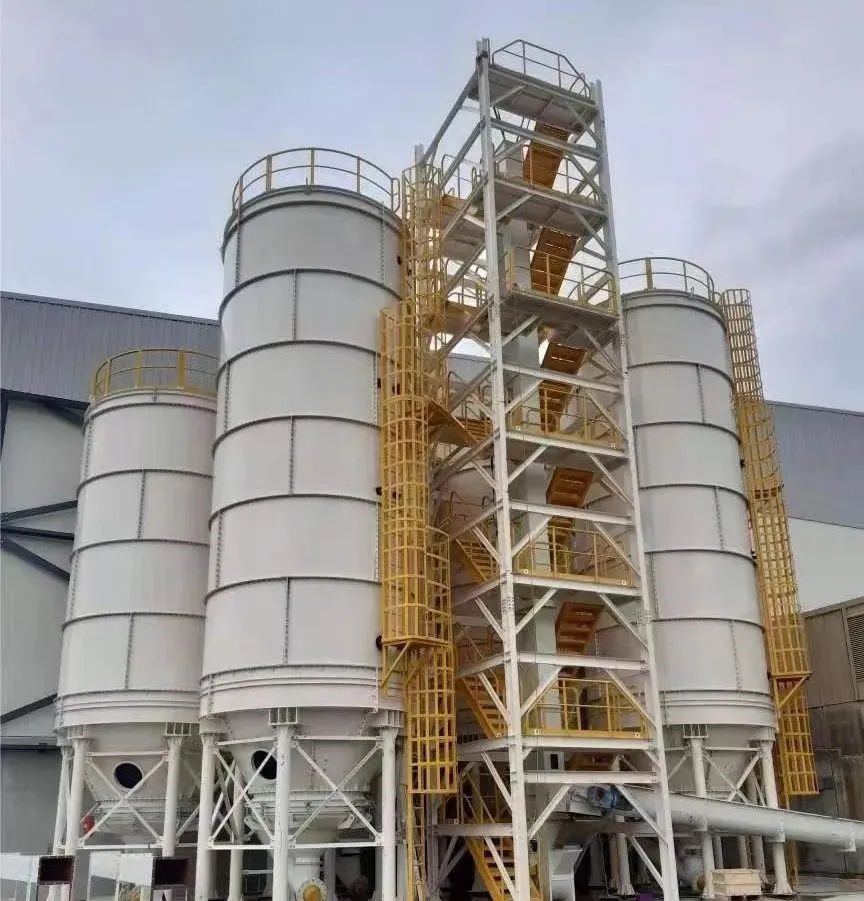头部邮箱+阿里巴巴
Welcome to Luwei official website!Tel:+86-592-7072928 E-mail: tina.ye@xmlwjx.com
Enhancing System Integration: Cement Bucket Elevators and Control Systems
- Categories:News Center
- Author:
- Origin:
- Time of issue:2023-10-09
- Views:0
(Summary description)Discover how to optimize system integration and improve the efficiency of cement bucket elevators and control systems. This comprehensive article explores the key factors that contribute to seamless i
Enhancing System Integration: Cement Bucket Elevators and Control Systems
(Summary description)Discover how to optimize system integration and improve the efficiency of cement bucket elevators and control systems. This comprehensive article explores the key factors that contribute to seamless i
- Categories:News Center
- Author:
- Origin:
- Time of issue:2023-10-09
- Views:0
1. Introduction: The Importance of System Integration in Cement Operations
2. Understanding Cement Bucket Elevators: Function and Benefits
3. Key Components of Cement Bucket Elevators
3.1. Bucket, Chain, and Belt Systems
3.2. Drive and Power Transmission
3.3. Elevator Boot and Casing
4. Control Systems in Cement Bucket Elevators
4.1. Overview of Control Systems
4.2. Benefits of Advanced Control Technologies
5. Advantages of Enhanced System Integration
5.1. Improved Efficiency and Productivity
5.2. Reduced Downtime and Maintenance Costs
5.3. Enhanced Safety and Operator Control
6. Factors Affecting System Integration in Cement Operations
6.1. Compatibility and Interoperability
6.2. Seamless Communication and Data Exchange
6.3. Integration of Monitoring and Diagnostic Systems
7. Best Practices for System Integration in Cement Operations
7.1. Choosing Reliable Equipment and Suppliers
7.2. Implementing Effective Maintenance Strategies
7.3. Investing in Continuous Training and Education
8. Frequently Asked Questions (FAQs)
8.1. How does system integration benefit cement bucket elevators?
8.2. What are the key components of a cement bucket elevator?
8.3. How do control systems enhance the performance of bucket elevators?
8.4. What factors should be considered for seamless system integration?
8.5. What are the best practices for optimizing system integration in cement operations?
9. Conclusion: Achieving Optimal System Integration for Cement Bucket Elevators and Control Systems
Introduction: The Importance of System Integration in Cement Operations
In the fast-paced world of cement production, seamless system integration plays a crucial role in ensuring efficient operations, improving productivity, and reducing costs. System integration involves harmonizing various components, such as cement bucket elevators and control systems, to work together seamlessly. This article will delve into the intricacies of enhancing system integration to maximize the performance of cement operations.
Understanding Cement Bucket Elevators: Function and Benefits
Cement bucket elevators are essential equipment in cement plants, responsible for vertically transporting bulk materials, such as cement, limestone, and clinker. These elevators offer numerous benefits, including efficient material handling, space-saving design, and reliable performance. By elevating materials to different levels within the plant, bucket elevators contribute to the overall smooth flow of production processes.
Key Components of Cement Bucket Elevators
To comprehend how cement bucket elevators operate, it is crucial to understand their key components. These components work in synergy to facilitate the seamless movement of materials throughout the plant.
Bucket, Chain, and Belt Systems:
The buckets, chains, and belts are vital elements of the elevator's mechanical structure. They work together to lift and convey materials vertically. The bucket design and size determine the capacity and efficiency of the elevator.
Drive and Power Transmission:
The drive system, including motors, gearboxes, and couplings, provides the necessary power to operate the bucket elevator. It ensures smooth and consistent movement of the materials. Proper power transmission is essential for maximizing efficiency and minimizing downtime.
Elevator Boot and Casing:
The elevator boot serves as the starting point for material loading. It houses the drive assembly and provides support to the elevator casing. The casing, on the other hand, encloses the entire system and prevents spillage, dust, and other contaminants from escaping.
Control Systems in Cement Bucket Elevators
Control systems play a pivotal role in optimizing the performance of cement bucket elevators. These systems utilize advanced technologies to regulate and monitor various aspects of elevator operation, ensuring smooth and efficient material handling.
Overview of Control Systems:
Control systems for cement bucket elevators encompass various components, including sensors, programmable logic controllers (PLCs), human-machine interfaces (HMIs), and communication networks. These systems enable operators to monitor elevator performance, adjust settings, and identify and resolve any issues promptly.
Benefits of Advanced Control Technologies:
Advanced control technologies, such as automation and remote monitoring, enhance the efficiency and reliability of cement bucket elevators. Automation minimizes human error, optimizes material flow, and reduces energy consumption. Remote monitoring enables real-time data collection, analysis, and predictive maintenance, resulting in improved overall performance.
Advantages of Enhanced System Integration
Seamless system integration of cement bucket elevators and control systems offers several advantages that positively impact cement operations.
Improved Efficiency and Productivity:
Enhanced integration allows for optimized material handling, reducing bottlenecks and improving overall plant efficiency. Smooth communication between the elevator and control systems enables precise control and coordination, promoting higher productivity.
Reduced Downtime and Maintenance Costs:
Integrated systems facilitate proactive maintenance through continuous monitoring and diagnostics. By detecting potential issues early on, maintenance can be scheduled conveniently, minimizing downtime and reducing maintenance costs.
Enhanced Safety and Operator Control:
Integrated control systems provide operators with real-time information, allowing them to make informed decisions and respond promptly to any deviations or emergencies. This improves safety, reduces risks, and enhances operator control over the entire process.
Factors Affecting System Integration in Cement Operations
Several factors influence the success of system integration in cement operations. Addressing these factors ensures seamless communication and coordination between cement bucket elevators and control systems.
Compatibility and Interoperability:
Choosing compatible components and systems that can seamlessly integrate with each other is crucial for smooth system operation. Incompatibility can lead to communication gaps and hinder the overall integration process.
Seamless Communication and Data Exchange:
Efficient communication and data exchange between the elevators and control systems are vital for optimal performance. Implementing standardized communication protocols and ensuring compatibility between different systems enable effective data exchange.
Integration of Monitoring and Diagnostic Systems:
Integrating monitoring and diagnostic systems into the overall control system enables real-time data collection and analysis. This information can be used to identify potential issues, predict maintenance requirements, and optimize elevator performance.
Best Practices for System Integration in Cement Operations
Implementing best practices for system integration can significantly enhance the performance and efficiency of cement operations.
Choosing Reliable Equipment and Suppliers:
Selecting reputable equipment manufacturers and suppliers ensures the availability of high-quality components that are compatible with the existing systems. Reliable equipment minimizes the risk of breakdowns and ensures smooth integration.
Implementing Effective Maintenance Strategies:
Regular maintenance, including inspection, lubrication, and component replacement, is crucial for the long-term performance of cement bucket elevators and control systems. Adhering to manufacturer-recommended maintenance schedules and implementing predictive maintenance strategies can prevent costly breakdowns and optimize system integration.
Investing in Continuous Training and Education:
Providing comprehensive training to operators and maintenance personnel is vital for leveraging the full potential of integrated systems. Training should cover not only the technical aspects but also the understanding of system integration and its benefits. Continuous education ensures that personnel stay updated with the latest advancements in control technologies and industry best practices.
Frequently Asked Questions (FAQs)
1. How does system integration benefit cement bucket elevators?
System integration optimizes the coordination between cement bucket elevators and control systems, resulting in improved efficiency, enhanced productivity, and better overall performance.
2. What are the key components of a cement bucket elevator?
The key components include the bucket, chain, and belt systems, drive and power transmission components, and the elevator boot and casing.
3. How do control systems enhance the performance of bucket elevators?
Control systems utilize advanced technologies to monitor and regulate elevator operation, enabling precise control, real-time data collection, and predictive maintenance. This enhances efficiency, reduces downtime, and improves safety.
4. What factors should be considered for seamless system integration?
Compatibility and interoperability of components, seamless communication and data exchange, and integration of monitoring and diagnostic systems are essential factors for successful system integration.
5. What are the best practices for optimizing system integration in cement operations?
Choosing reliable equipment and suppliers, implementing effective maintenance strategies, and investing in continuous training and education are key best practices for optimizing system integration in cement operations.
Conclusion: Achieving Optimal System Integration for Cement Bucket Elevators and Control Systems
Seamless system integration is crucial for maximizing the efficiency and performance of cement operations. By harmonizing the functions of cement bucket elevators and control systems, operators can streamline material handling, reduce downtime, and enhance safety. Through advanced control technologies, reliable equipment, and effective maintenance strategies, cement plants can achieve optimal system integration and enjoy the benefits of improved productivity, reduced costs, and enhanced overall operations.
Scan the QR code to read on your phone
The Essential Role of Chain Type Bucket Elevators in Mining Operations
Key Benefits of Chain Type Bucket Elevators in Industrial Equipment
Enhancing Productivity with Modern Grain Storage Silo Solutions
Essential Information about Grain Storage Silos
Maximizing Space and Preserving Quality: Benefits of Grain Storage Silos
Unlocking the Potential of Grain Storage Silos: Key Information for Industrial Equipment Professionals

Scan and follow Lu Wei

Scan and follow Xiang Hao

Scan and follow Zhi Xiang
Xiamen Luwei Prefabricated
Steel Structure Co., Ltd Ltd.
Service Hotline:
+86 592-7072928 / +86 18150889219 (Tina Ye) (Overseas)
E-mail:tina.ye@xmlwjx.com
Registered address of the company:
Office Building 3rd Floor, No.608, Xinxia
South Road, Xinxu Town, Xiang'an District, Xiamen City
Factory Address:
E3 workshop, Factory 2nd Floor, No.608, Xinxia South Road, Xinxu Town, Xiang'an District, Xiamen City
Page Copyright: Xiamen Luwei Prefabricated Steel Structure Co., Ltd Ltd. 闽ICP备10205934号
Friendly Link: Alibaba







